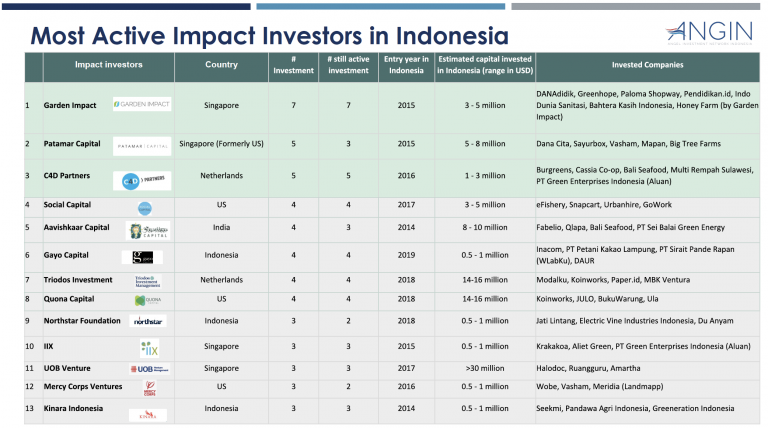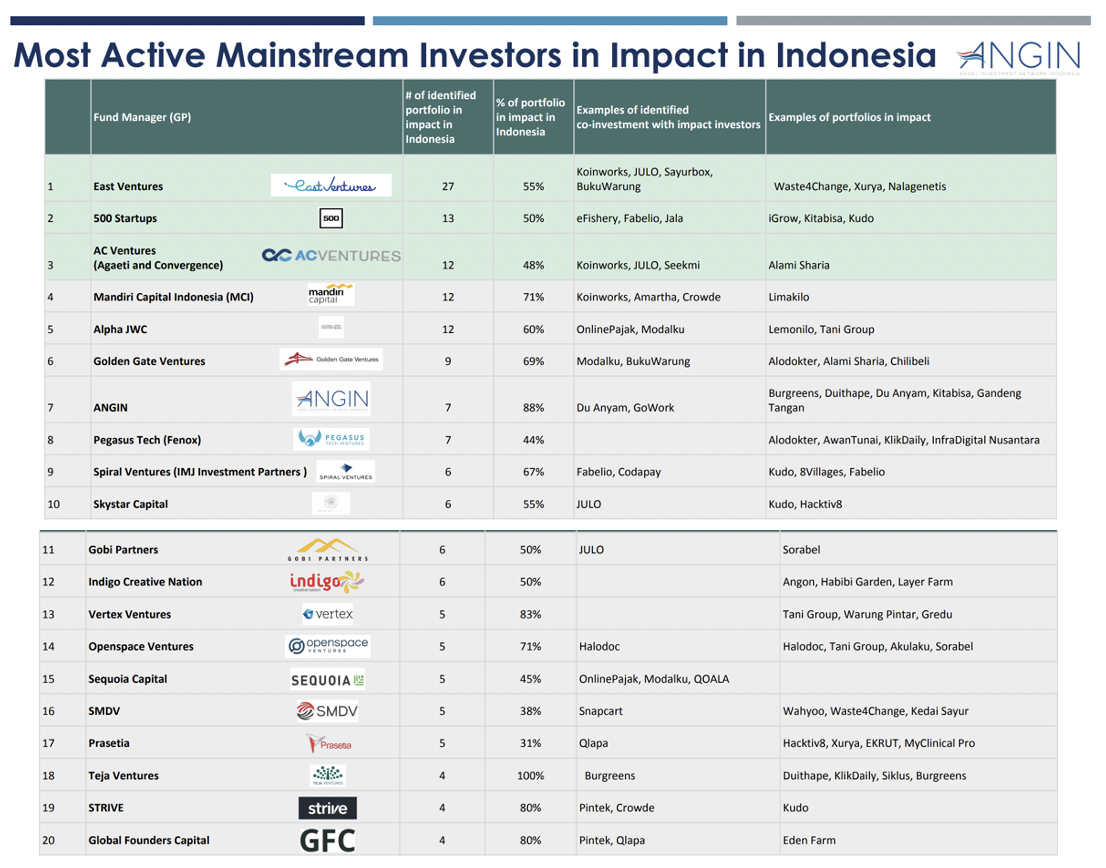Who is also investing in impact in Indonesia? East Ventures, 500 Startups, AC Ventures, MCI and Alpha JWC on top of the list.
Not only impact investors, Mainstream Investors (sometimes referred as “commercial investors”) such as East Ventures, 500 Startups, Alpha JWC, and many other Venture capital firms, Corporate VC, holding companies also invest in impact-driven enterprises, that we mentioned in our report as Enterprises in Impact Areas.
Enterprises in Impact Areas are not necessarily considered themselves (or by the public) social enterprises as per the common definition which involved impact intention, measurement and for-profit model generating the impact. However, these Enterprises in Impact Areas do contribute to the achievement of the SDGs and key impact areas for Indonesia such as financial inclusion, SMEs financing, access to education, better tax system, improved agriculture value chains or waste management among others critical themes (you can find these impact themes on the GIIN Iris Metrics system)
Impact Investors are by mandate aiming to leverage their investments in impact-driven enterprises and social enterprises to create their impact. Our first ranking highlighted the most active Impact Investors in Indonesia. It was an easier exercise as we considered that all investments made by these impact investors were social enterprises and impact-driven enterprises. We did not have to operate a complex filtering of their portfolios.
When our team deep dived into the data (more than 250 investors), we managed to highlight how the Mainstream Investors play a key role in supporting the achievement of UN Sustainable Development Goals in Indonesia through their investing activities. The Mainstream Investors may not have the mandate to achieve specific impact areas and/or implement the impact measurement. However, they invest in these impact-driven entrepreneurs, help them unlock the growth, and attract more capital by co-investing with impact investors and fellow mainstream investors. In this ranking, we considered mostly the number of identified investment made into enterprises in impact areas and the co-investments with impact investors. We had to operate our own filtering leveraging the UN SDG framework and GIIN metrics to allocate the label “impact areas” to the enterprises.
Another interesting trend, we witness a encouraging trend that these mainstream investors become more aware of and even highly active towards the environmental and/or social impact creation, which is shown on their new impact funds/arms, hiring key people for impact implementation (Open Space hired an ESG expert), framing the impact lens of their investment portfolios or/and joining key agendas on the impact advocacy (Alpha JWC joining AVPN or 500 Startups through its work with UNDP).
Find more insights on our full report here: https://www.angin.id/2020/10/05/investinginimpact
Disclaimer: Our data was collected in June-July 2020. The Venture Capital and early stage funding are highly dynamic and the landscape is changing a lot. New players came in since our report (such as BRI Ventures), new money was raised and new investments made. We will do our best to reflect the changes with updated reports.






